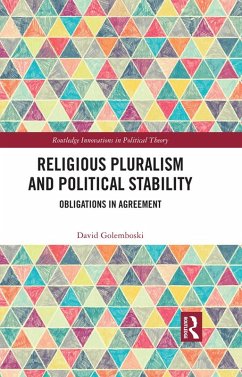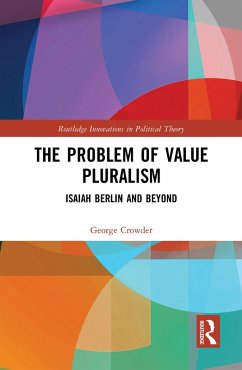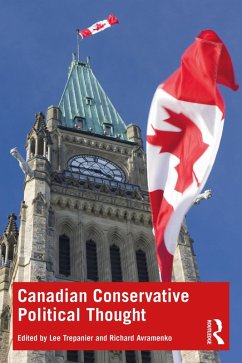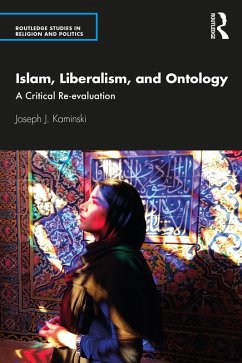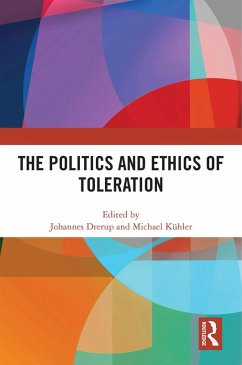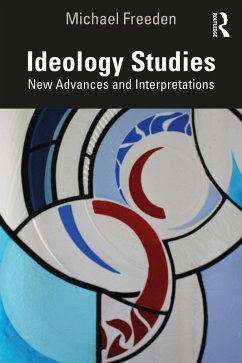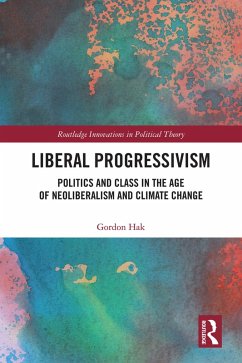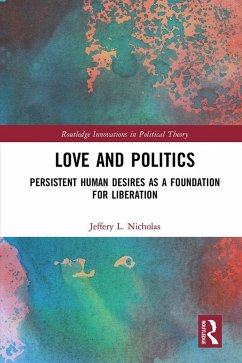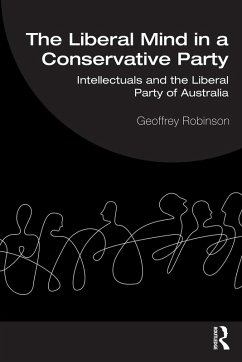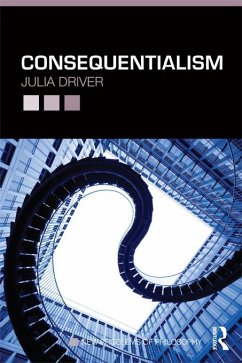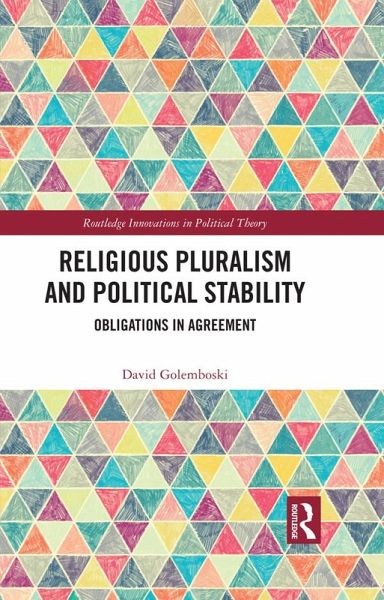
Religious Pluralism and Political Stability (eBook, PDF)
Obligations in Agreement
Versandkostenfrei!
Sofort per Download lieferbar
41,95 €
inkl. MwSt.
Weitere Ausgaben:

PAYBACK Punkte
21 °P sammeln!
This book argues that the principles and institutions of political liberalism are necessary conditions for achieving reliable stability amid conditions of pluralism. Only a political system of this sort can bring citizens' moral, religious, and political loyalties into robust agreement.Through an analysis that encompasses normative political theory and American constitutional law, David Golemboski illustrates the implications of this conclusion by examining contemporary legal debates in law and religion. By developing a fresh perspective on how legal frameworks for religious exercise and estab...
This book argues that the principles and institutions of political liberalism are necessary conditions for achieving reliable stability amid conditions of pluralism. Only a political system of this sort can bring citizens' moral, religious, and political loyalties into robust agreement.
Through an analysis that encompasses normative political theory and American constitutional law, David Golemboski illustrates the implications of this conclusion by examining contemporary legal debates in law and religion. By developing a fresh perspective on how legal frameworks for religious exercise and establishment can ameliorate conflict and enhance the stability of a liberal constitution, this book demonstrates that political systems need not subordinate or sacrifice important liberal priorities in favor of stability. Rather, those liberal priorities are themselves necessary components of a stable order.
Religious Pluralism and Political Stability will be of interest to scholars across the fields of political philosophy, legal theory, and constitutional law who have an interest in religion.
Through an analysis that encompasses normative political theory and American constitutional law, David Golemboski illustrates the implications of this conclusion by examining contemporary legal debates in law and religion. By developing a fresh perspective on how legal frameworks for religious exercise and establishment can ameliorate conflict and enhance the stability of a liberal constitution, this book demonstrates that political systems need not subordinate or sacrifice important liberal priorities in favor of stability. Rather, those liberal priorities are themselves necessary components of a stable order.
Religious Pluralism and Political Stability will be of interest to scholars across the fields of political philosophy, legal theory, and constitutional law who have an interest in religion.
Dieser Download kann aus rechtlichen Gründen nur mit Rechnungsadresse in A, B, BG, CY, CZ, D, DK, EW, E, FIN, F, GR, HR, H, IRL, I, LT, L, LR, M, NL, PL, P, R, S, SLO, SK ausgeliefert werden.




